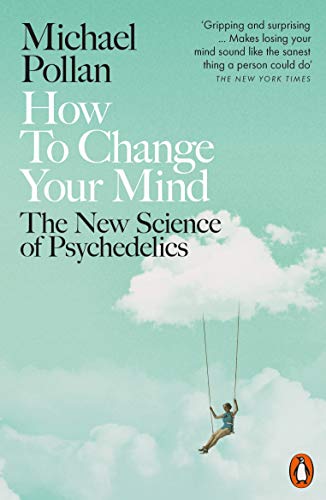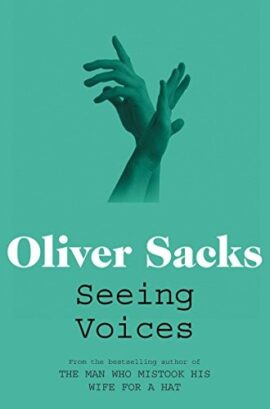How to Change Your Mind: The New Science of Psychedelics
3.000,00 د.ج
The No.1 New York Times Bestseller’Gripping and surprising … Pollan makes losing your mind sound like the sanest thing a person could do’ The New York Times Book ReviewCould psychedelic drugs change our worldview? Join Michael Pollan on a journey to the frontiers of the human mind.Diving deep into an extraordinary world – from shamans and magic mushroom hunts to the pioneering labs mapping our brains – and putting himself forward as a guinea-pig, Michael Pollan has written a remarkable history of psychedelics and a compelling portrait of the new generation of scientists fascinated by the implications of these drugs. How to Change Your Mind is a report from what could very well be the future of consciousness.’A sweeping and often thrilling chronicle of the history of psychedelics, all interwoven with Pollan’s adventures as a psychedelic novice. This is a serious work of history and science, but also one in which the author, under the influence of toad venom, becomes convinced he’s giving birth to himself’ Oliver Burkeman, Guardian’A mind-altering book … full of transformations’ Richard Godwin, Evening Standard’An irresistible blend of history, research and personal experience. In terms of the psychedelic wave, the book is the big kahuna, the Big Bang moment for a movement that is gathering force’ John McKenna, Irish Times’Entertaining and engrossing’ Paul Laity, Financial Times’Deeply absorbing, wise and beautifully written’ Mick Brown, Literary Review’An astounding book’ Andrew Sullivan, New York Magazine
The No.1 New York Times Bestseller’Gripping and surprising … Pollan makes losing your mind sound like the sanest thing a person could do’ The New York Times Book ReviewCould psychedelic drugs change our worldview? Join Michael Pollan on a journey to the frontiers of the human mind.Diving deep into an extraordinary world – from shamans and magic mushroom hunts to the pioneering labs mapping our brains – and putting himself forward as a guinea-pig, Michael Pollan has written a remarkable history of psychedelics and a compelling portrait of the new generation of scientists fascinated by the implications of these drugs. How to Change Your Mind is a report from what could very well be the future of consciousness.’A sweeping and often thrilling chronicle of the history of psychedelics, all interwoven with Pollan’s adventures as a psychedelic novice. This is a serious work of history and science, but also one in which the author, under the influence of toad venom, becomes convinced he’s giving birth to himself’ Oliver Burkeman, Guardian’A mind-altering book … full of transformations’ Richard Godwin, Evening Standard’An irresistible blend of history, research and personal experience. In terms of the psychedelic wave, the book is the big kahuna, the Big Bang moment for a movement that is gathering force’ John McKenna, Irish Times’Entertaining and engrossing’ Paul Laity, Financial Times’Deeply absorbing, wise and beautifully written’ Mick Brown, Literary Review’An astounding book’ Andrew Sullivan, New York Magazine
| Editeur |
|---|
Produits similaires
The Future of Geography
the new frontier, a wild and lawless place. It is already central to communication, economics, military strategy and international relations on Earth. Now, it is the latest arena for human exploration, exploitation – and, possibly, conquest. We’re heading up and out, and we’re taking our power struggles with us. China, the USA and Russia are leading the way.
From physical territory and resources to satellites, weaponry and strategic choke points, geopolitics is as important in the skies above us as it is down below. If you’ve ever wondered if humans are going back to the Moon, who will benefit from exploration or what space wars might look like, the answers are here.
With all the insight and wit that have made Tim Marshall the UK’s most popular writer on geopolitics, this gripping book shows how we got here and where we’re going, covering great-power rivalry; technology; commerce; combat in space; and what it means for all of us down here on Earth. This is essential reading on power, politics and the future of humanity.
In Cold Blood
An alternate cover of this ISBN can be found here.
No Friend but the Mountains: The True Story of an Illegally Imprisoned Refugee
In 2013, Kurdish journalist Behrouz Boochani sought asylum in Australia but was instead illegally imprisoned in the country’s most notorious detention centre on Manus Island. He has been there ever since. This book is the result.
Behrouz Boochani spent nearly five years typing passages of this book one text at a time from a secret mobile phone in prison. Compiled and translated from Farsi, they form an incredible story of how escaping political persecution in Iran, he ended up trapped as a stateless person. This vivid, gripping portrait of his years of incarceration and exile shines devastating light on the fates of so many people as borders close around the world.
No Friend but the Mountains is both a brave act of witness and a moving testament to the humanity of all people, in the most extreme of circumstances.
'A brilliant book. No Friend but the Mountains can rightly take its place on the shelf of world prison literature . . . It is a profound victory for a young poet who showed us all how much words can still matter.' - Richard Flanagan, Booker Prize winning author of The Narrow Road to the Deep North









